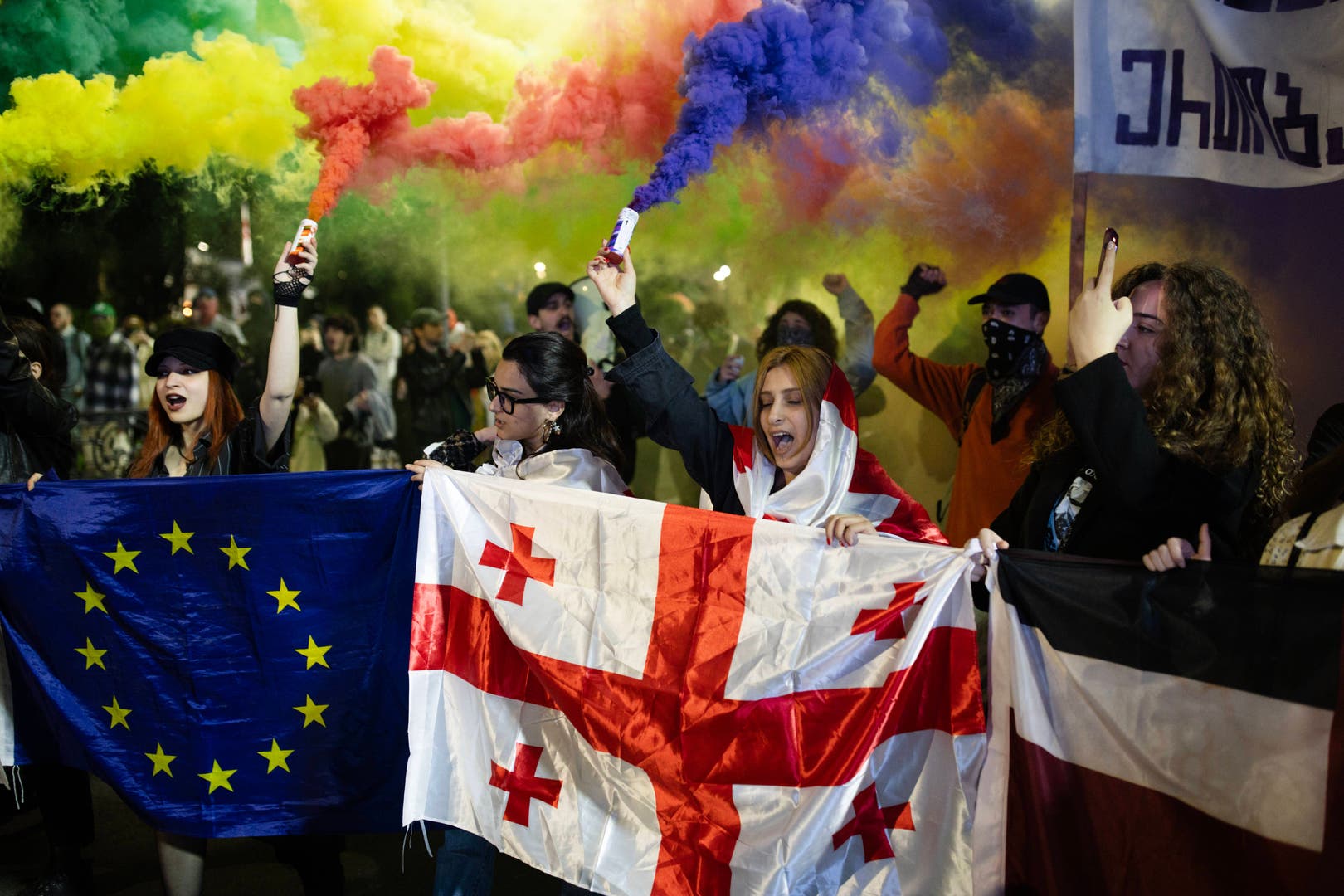
The Erosion of Democracy in Georgia
Georgia is currently witnessing a rapid erosion of its democratic structures. Over the past 14 months, the Georgian Dream party has implemented a policy of repression that took Vladimir Putin 13 years to achieve after his return to the Russian presidency in May 2012. Can Bidzina Ivanishvili, Georgia's leader, maintain these repressive policies in the long term?
The crackdown began with a law on transparency regarding foreign influence in April 2024. This law aimed to subject non-governmental organizations to strict control, drawing comparisons to Putin’s campaign against critics. Thanks to widespread electoral fraud, the ruling Georgian Dream party secured another parliamentary majority in the fall of 2024. Since then, the party has passed more than a dozen repressive bills designed to bring civil society and independent media under control.
Systematic Persecution
The suppression is not just a plan—it is real. In recent weeks, leaders of most opposition parties have been sentenced to prison on weak grounds. Another opposition politician, former Prime Minister Giorgi Gacharia, has fled into exile. Hundreds of citizens have faced mistreatment by the police, but none of these cases have been investigated. Instead, particularly brutal officers have been awarded medals. Civil servants who remain loyal to the state rather than the whims of a political clique have been dismissed.
Giorgi Bachiashvili, a former employee of Ivanishvili, was abducted from the Emirates to Georgia in mid-June and was severely mistreated in prison shortly thereafter.
Journalists have become particular targets of persecution. Mzia Amaglobeli, a well-known regional newspaper founder in Batumi, could soon face years in prison due to an incident provoked by the police. Another regional journalist, Gela Mtivlishvili, has been repeatedly assaulted, along with dozens of other journalists—some of whom were seriously injured during protests. Foreign reporters, including British journalist Will Neal, French colleague Clément Girardot, Swiss photographer Stephan Goss, and others, have been turned away at the Georgian border in recent months.
Even artists are becoming targets. Poet Zviad Ratiani is in prison and has already been mistreated by the police. Swiss-Georgian musician Kordz, composer of a song critical of the regime, narrowly escaped a gang of thugs in mid-July. The men, who had beaten up another singer critical of the regime the day before, felt so secure from prosecution that they filmed their attack and posted it online. Popular actor Andro Chichinadze has been in prison since December. The persecution of prominent figures seems intended to intimidate the population.
Increasing Boldness
The Georgian perpetrators are aware of what they are doing. This is because the prime minister, the speaker of parliament, the head of state security, and key figures in the Georgian judiciary all hold doctorates in law from Germany. It is perhaps indicative of the state of German jurisprudence that several German professors continue to collaborate with the Georgian authorities.
Meanwhile, Georgian Dream is becoming increasingly bold. Every week, European diplomats are vilified by leading politicians of the regime. So far, there has been no clear response from Brussels or Berlin. Only the U.K. and the Baltic countries have taken clear action in recent months.
The opposition in Georgia is exhausted. However, Ivanishvili may have miscalculated with his pro-Russian course in the medium term. Protests have now lasted over eight months. Unlike Russia, Georgia does not have oil or gas to finance authoritarian policies. Ivanishvili cannot, like Putin, draw on an imperial tradition.
Georgian identity has been pro-European for generations, despite Georgian Dream propaganda attempting to stir up anti-Western sentiment. The country's power structures have never been systematically established, and due to internal struggles within the Georgian Dream coalition, they are staffed by inexperienced individuals.
Thus, repression appears to be driven by uncertainty: Ivanishvili senses that the power of the Georgian Dream is fragile. This fear makes the regime even more dangerous. As a result, there is reason to fear for the country’s future.
